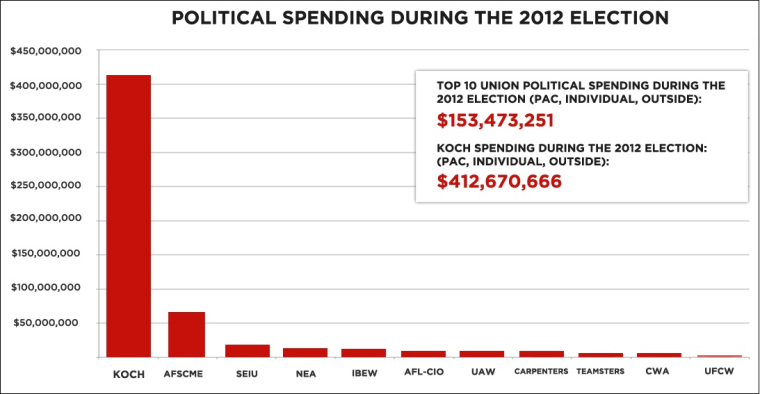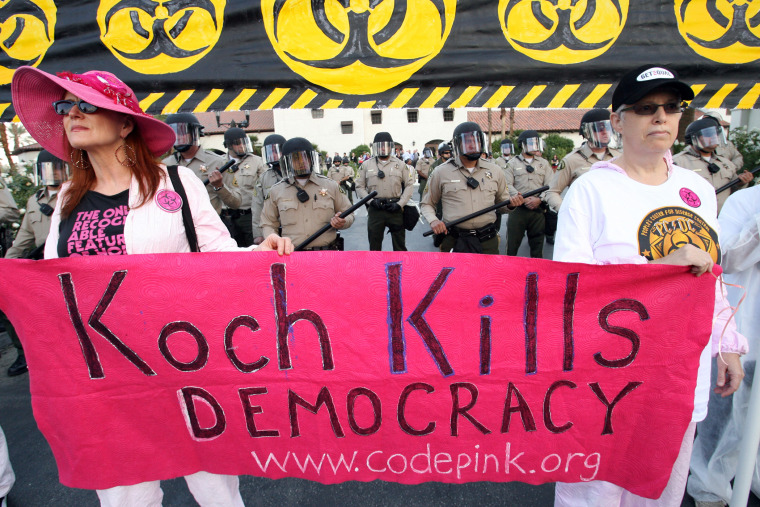Charles and David Koch have invested heavily in recent years to influence U.S. politics, to the delight of their Republican allies and the consternation of their Democratic foes. But no matter how freely the billionaire brothers have spent, Koch spokesperson Melissa Cohlmia said last week, it's "drops in a bucket" compared with what unions have spent to support many positions opposed by the Kochs.
This is not an uncommon line. In fact, Kimberley Strassel's latest Wall Street Journal column argues that Senate Majority Leader Harry Reid and other Democrats have the wrong campaign-finance culprit: it's "unions," Strassel argued, and not the Koch brothers, who want to spend "unlimited money" to "rig the system" and "buy elections." The Kochs spend a lot, she conceded, but not as much as labor.
There are a couple of problems with the comparison. The first should be obvious: when gauging political impact, it's misleading to draw parallels between two extraordinarily wealthy individuals and several million unionized workers. But as Jonathan Cohn explained, there's an even more glaring problem.
By focusing on direct contributions to the parties and the candidates, [Strassel] did what conservatives defending the Koch brothers almost always do. She severely downplayed the primary way the Kochs influence politics -- through unregulated, indirect financing of conservative political organizations. According to Robert Maguire, a researcher who pieced together the Koch money trail from disparate Internal Revenue Service and Federal Election Commission reports, conservative nonprofit organizations that received large grants from Koch-backed intermediaries spent $170 million during the 2012 election cycle. Unions spent just $24 million.
And that kind of money isn't just "drops in a bucket."
To help drive the point home, consider this chart in the Republic Report report showing campaign investments from the 2012 cycle, making a pretty strong case that the Koch brothers' spending easily outpaced the labor powerhouses combined. The image, unlike Strassel's WSJ column, includes the "dark money" spending both sides made in support of their partisan allies.

